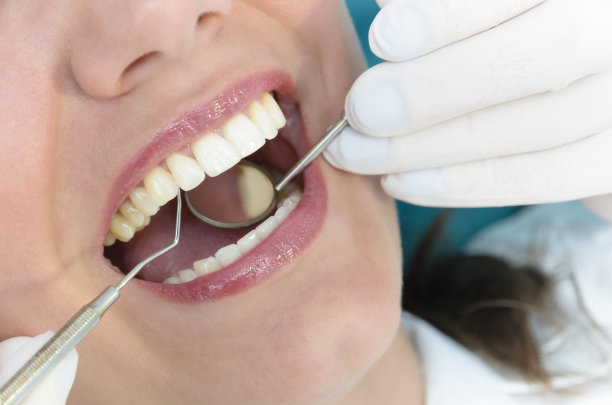Summary: Dental fillings are a common procedure to restore decayed teeth, and understanding the essential precautions and care tips can ensure a successful outcome and smooth recovery. This article will guide you through the four critical aspects of preparing for a dental filling, including pre-procedure considerations, the procedure itself, post-procedure care, and tips for long-term dental health. By following these guidelines, patients can minimize discomfort, avoid complications, and enhance the longevity of their fillings.
1. Pre-Procedure Considerations for Dental Fillings

Before undergoing a dental filling, it is crucial to communicate openly with your dentist about any existing health conditions or medications you are taking. Some medical conditions, such as heart disease or diabetes, can influence how the body reacts to dental procedures. Additionally, medications like anticoagulants may require special management during treatment.
Another important consideration is understanding the different types of filling materials available. Your dentist can explain the advantages and disadvantages of options such as amalgam, composite resin, or porcelain. This information can influence your decision and help you set realistic expectations regarding the appearance, durability, and longevity of the filling.
Lastly, it is advisable to schedule the appointment at a time when you can take care of yourself afterward. Ensure you have someone to drive you home, especially if sedation is used during the procedure. Planning for rest and avoiding strenuous activities will enhance your recovery experience.
2. Insights into the Dental Filling Procedure
The dental filling procedure typically begins with local anesthesia to ensure you remain comfortable and pain-free during the treatment. It is essential to inform your dentist if you are anxious or have a low tolerance for pain, as they may adjust the anesthesia accordingly.
Once numbness is achieved, the dentist will remove the decayed portion of the tooth and clean the area thoroughly. This step is critical for preventing future infections and ensuring a secure bond between the filling material and the tooth structure.
After preparing the tooth, the dentist will fill the cavity with the chosen material. The filling is then shaped and polished to match the contours of your original tooth. This process is essential for ensuring a natural bite and minimizing discomfort when chewing.
3. Post-Procedure Care for Optimal Recovery
Immediately after receiving a dental filling, you may experience some numbness in your mouth. Avoid chewing until the anesthesia wears off to prevent accidentally biting the inside of your cheek or tongue. It is also advisable to steer clear of hot foods and beverages, as you may not be able to gauge their temperature properly during this time.
For the first few days post-procedure, you might experience sensitivity to temperature changes or pressure. Over-the-counter pain relievers can help manage this discomfort, but if the pain worsens or persists beyond a few days, contact your dentist for further evaluation.
Maintaining oral hygiene post-filling is crucial. Gently brushing and flossing the area delicately will help keep the filling and surrounding gum tissue healthy. Regular dental check-ups will ensure that your fillings remain in good condition over time.
4. Long-Term Tips for Maintaining Dental Fillings
To maximize the lifespan of your dental fillings, it is essential to practice good oral hygiene. Brushing twice a day and flossing daily can help prevent further decay and gum disease. Consider using a toothpaste designed for sensitive teeth if you experience discomfort.
Avoiding excessive consumption of sugary foods and drinks can also prolong the life of your fillings. Sugar promotes the growth of bacteria in your mouth, leading to more decay and potential issues with your fillings. Aim for a balanced diet rich in fruits, vegetables, and whole grains to support overall dental health.
Lastly, don’t forget to visit your dentist regularly for preventive care and assessments. Professional cleanings and examinations will help catch any potential problems early and ensure that both your fillings and natural teeth remain in excellent condition.
Summary:
In conclusion, understanding and following essential precautions before, during, and after a dental filling procedure can significantly influence the overall success and recovery process. By taking proactive measures and maintaining good oral hygiene, patients can enjoy a healthier smile and extend the lifespan of their dental work.
This article is compiled by Vickong Dental and the content is for reference only.
Vickong Dental
Vickong Dental is a large medical group established in Hong Kong in 2008 by professors from well-known medical universities in Guangdong and Hong Kong, as well as medical doctors from key national '985' universities (including Master's supervisors and senior professors). The chain of branches brings together expert dentists with PhDs and Master's degrees from Hong Kong and Mainland China, committed to providing high-quality dental treatment.
"Vickong Dental Practices the University Motto of 'Healing and Serving Society,' with a Stable Operation for Sixteen Years. It Has Been honored with Hong Kong Enterprise Leaders's Choice,' and is a Global Trusted Implant Center for the Nobel Implant System. Recommended by Hong Kong Metro Broadcast and Guangdong Television, it Serves Customers from Over Thirty Countries and Regions, Gaining the Trust and Favor of Citizens from the Guangdong-Hong Kong-Macau Greater Bay Area and Surrounding Cities.

Thousands of customers' unanimous praise
The most recognized and highly recommended dental service by customers in the Guangdong-Hong Kong-Macau Greater Bay Area
We Ensure You Receive Detailed Care and Attention Here
Hong Kong standards, Shenzhen prices, Your Trusted English-speaking dentists

Vickong Dental Medical-Grade Instrument Disinfection Process
Vickong Dental Medical-Grade Instrument Disinfection Process

Vickong Dental Chain: A Warm and Comfortable Environment for Treatment






Appointment Hours

Q&A
Why choose Vickong Dental?
Vickong Dental practices the university motto 「Medicine to Benefit Society」, with each branch bringing together highly qualified dentists with doctoral and master’s degrees from Hong Kong and the Mainland, and has maintained seventeen years of steady operation。Recipient of 「2024 Hong Kong Enterprise Leaders Brand」, 「2025 Hong Kong Enterprise Leaders Brand」, a Nobel Biocare Global Trusted Implant Center, and a brand recommended by Metro Radio Hong Kong and Guangdong TV。
To date, we have served customers from more than thirty countries and regions,earning exceptionally high word-of-mouth recognition and trusted recommendations from residents across the Guangdong-Hong Kong-Macao Greater Bay Area and surrounding cities
We have eight major branches in Zhuhai、Shenzhen,and a consultation and service assurance center in Hong Kong,so you can book a free consultation at any time for any questions,which is very reassuring.
If I do not accept the quotation after the CT scan, will I be charged??
No! As long as the actual treatment has not started, you will not be charged any fees.
Will there be any additional charges during the treatment process?
No, there won’t be any additional charges. Before treatment begins, we will clearly explain the treatment plan and its corresponding fees. Only after the patient agrees and signs the consent form will we proceed with the dental service.
Can I pay in Hong Kong dollars?
Yes. Vickong Dental accepts payment in Hong Kong dollars. The amount will be converted based on the exchange rate of the day, and the applicable rate will be clearly communicated to you in advance.
Can I reschedule my appointment at any time?
Yes. Please contact us via **WeChat** or **WhatsApp** as early as possible, providing your original appointment time and details, along with your preferred new date and time slot for rescheduling.













